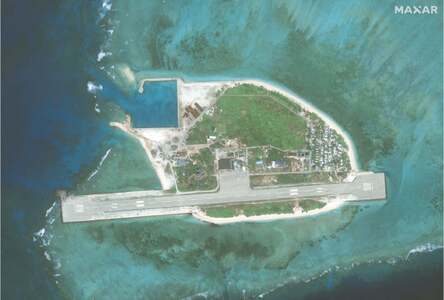ZAGREB: One year ago, Croatia joined the European Union with great fanfare, sparking hopes that membership of the rich 28-nation bloc would transform the fortunes of the tourism-dependent economy. But as the anniversary looms, the hoped-for boom has largely failed to materialise.
Croatia remains one of the bloc’s weakest economies, mired in a seemingly never-ending recession that has pushed unemployment to 20 per cent — half of the country’s youth are without a job.
The Adriatic country of 4.2 million people has seen its economy contract for the past 10 quarters and only Greece — which bore the brunt of the eurozone debt crisis — suffered a bigger fall in output from 2009 to 2013.
In the first quarter of this year, the economy shrank by 0.4 per cent compared to the same period last year, before Croatia joined the bloc. The centre-left government led by Social Democrat Prime Minister Zoran Milanovic had high hopes that EU membership would boost foreign investment in the former Yugoslav republic, which proclaimed independence in 1991. But compared to a year before last July’s EU accession, Croatia saw a 60-per cent drop in foreign direct investment in 2013.
Experts say investors are scared away by frequent changes in legislation, high business charges, rigid labour laws and investment insecurity. Croatia’s central bank ranks the country the second-worst in the EU after Greece when it comes to business climate. The unfriendly business climate was thought to be behind the fact that potential bidders shied away from buying troubled national carrier Croatia Airlines last year.
“Croatia needs to work really hard at improving competitiveness and the business environment to attract foreign direct investment,” said Timothy Ash, chief emerging markets analyst at Standard Bank.
However, another analyst, Damir Novotny, of the Munich-based T&MC consulting group, pointed out there are external factors at play in Croatia’s less-than-stellar economic performance. Unlike fellow EU newcomers Bulgaria and Romania, which joined in 2007, Croatia’s EU accession came at the height of the global financial crisis and banks were less keen to plough in capital.
“Optimism reigned at the time of the EU enlargement to the east [in 2004 and 2007], bringing investment to these countries,” said Novotny. Ash echoed the view stressing that “10 years ago, foreign banks were in expansion mode and they were deploying capital in the region. Now they are pulling back, which means the growth drivers are weaker”.
Croatia remains a major magnet for tourists all over the world, who provide a much-needed boost to the ailing economy. Last year, tourism income amounted to a hefty 15 per cent of Croatia’s entire gross domestic product, according to the government’s figures. But Ash warned that the country is too dependent on foreigners coming for a holiday and “needs to do something to diversify away from tourism”.
Like much of the country, entrepreneur Bozidar Toncic, 38, expected greater prosperity from EU membership. But his dream of setting up a small carpentry business has run up against so much bureaucracy that he is now considering packing it all in.
“I expected less paperwork, shorter bureaucratic procedures and a certain amount of tax stability,” he complained. “None of this has happened.” Investors say the blame for this lies not with the EU, but the Croatian authorities, which have been slow to undertake much-needed economic reforms.
“The state is too expensive and is the main burden,” said Ante Babic, secretary general of the Foreign Investors Council. The impact of EU membership cannot be measured until next year, he said, adding it has at least brought some fiscal discipline as the government now has to report to Brussels every six months on its economy.
An unstable political situation has not helped a drive to reform. The ruling party is deeply split and deeply unpopular, with several ministers being sacked recently. Voters showed their discontent in the May European elections, handing victory to the opposition conservatives.
And with only 18 months to go until parliamentary elections, many doubt the ruling party has the stomach for the deep-seated reforms required to turn around Croatia’s tottering economy. “In difficult times, the rulers do not deal with the country’s problems, but with internal affairs, which is deepening the crisis in Croatia,” said Berto Salaj, a political sciences professor at the Zagreb University .
On top of it all, Croatia is finding that its economic worries are driving away its talented youth, compounding its myriad of problems. With a 50 per cent youth unemployment rate, Croatia ranks ahead of only Greece and Spain when it comes to creating jobs for young people and Ana, a 24-year-old tourism management student, said her generation does not see “many possibilities” to stay in the country.—AFP
Published in Dawn, June 30th, 2014














































Dear visitor, the comments section is undergoing an overhaul and will return soon.